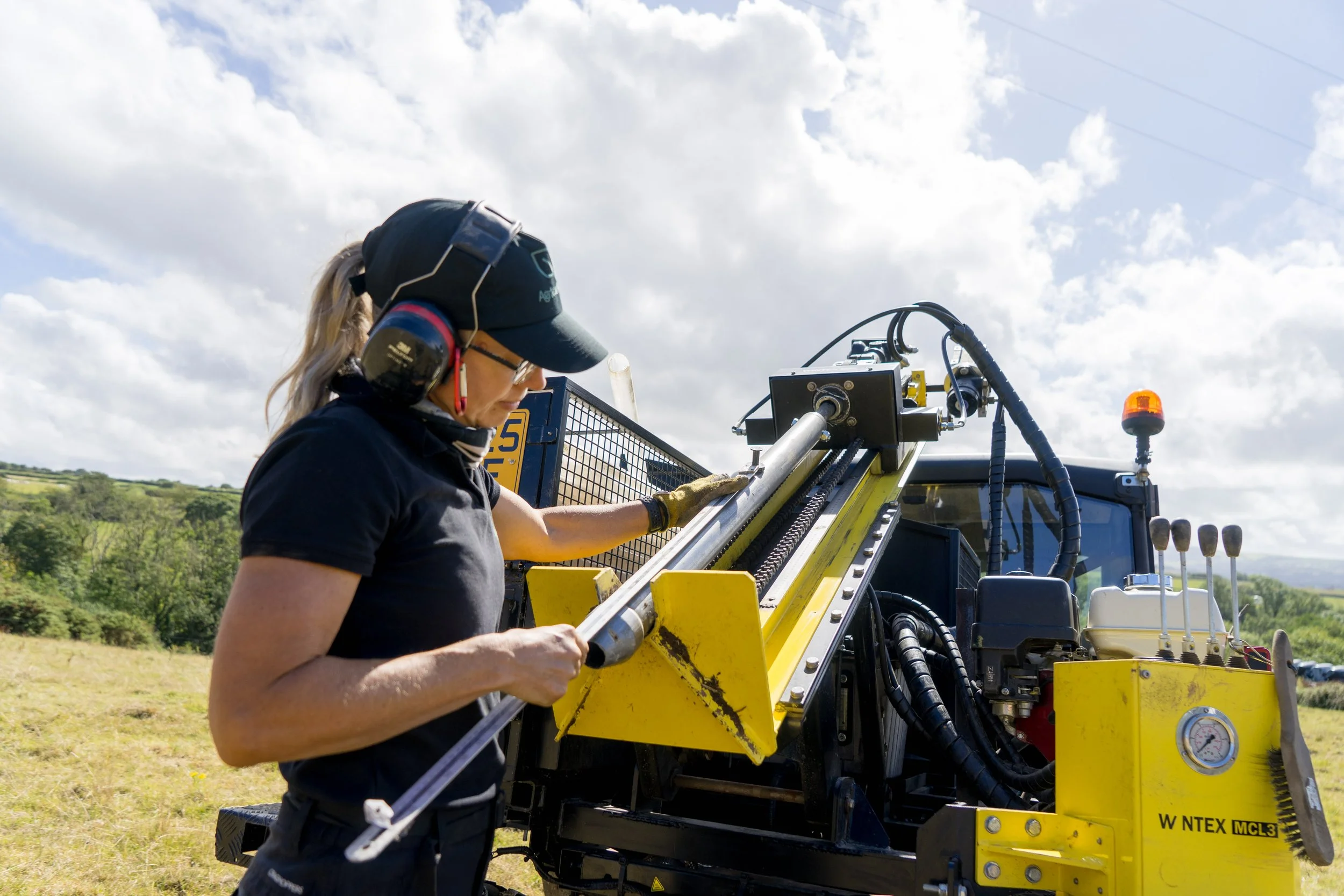Grounded ‘Live’: Why you need a soil carbon baseline now
In the first episode of our Grounded ‘Live’ sessions, we brought together an expert panel to discuss soil carbon baselines and everything you need to know about generating income from your soil.
Regular Grounded hosts Kyle Richardville and farmer Stuart Johnson, from our mentoring team, were joined by Regenerate Outcomes Chief Scientific Officer Matt Jordon and Director Tom Dillon.
In addition, they were also joined by Luke Baldwin, CEO of Nature Broking, and Wiltshire farmer George Hosier, who is also a member of our mentoring team.
You can watch the full webinar here:
Healthy soil contains more carbon
The healthier soil is, the more carbon it will contain in the form of organic matter.
Organic matter also drives soil aggregation, with all of the benefits that brings for water cycling and resilience to extreme weather.
“It’s the organic matter in the soil that turns your sand and clay particles into a structure with aggregates that deliver everything we want from a soil,” says Matt.
“It’s the organic matter in the soil that turns your sand and clay particles into a structure with aggregates that deliver everything we want from a soil.”
Natural processes cycle carbon into and out of the soil, but it is possible to increase the net amount of carbon and organic matter by using regenerative farming practices.
“There's always some going in and there's always some going out,” says Kyle.
“It just so happens that in the last 80 to 100 years we've farmed in such a way where a lot more has come out than what we've put back in.
“We've drained that bank account and we have to do something to bring more carbon back into the system, for climatic reasons and productivity reasons.”
Why farmers should get a soil carbon baseline now
Regenerate Outcomes’ mentoring team supports farmers to adopt regenerative practices which improve soil health.
We also provide a soil carbon baseline when members join the programme and measure increases over time at no upfront cost.
Improved soil health can help cut input costs, enhance crop and livestock performance and increase resilience to extreme weather.
The increase in soil carbon from the initial baseline can also be sold in the form of carbon credits to generate additional income.
Agricarbon taking soil cores for Regenerate Outcomes.
However, it is impossible to generate carbon credits without a baseline in place.
Matt says it is also important to get a baseline which gives the most accurate measurement of soil carbon possible.
This will ensure the resulting credits meet international verification standards. These types of credits are more in demand from corporate buyers and therefore attract additional value.
“When we're thinking about carbon in particular, we're not just interested in the carbon content expressed as a percentage,” says Matt.
“We also want to know how many tonnes of carbon that gives us across the whole field or across the whole farm.
“We need the carbon content as a percentage, but we also need the bulk density of the soil. Multiplying those two together, plus the sample depth, gives you that measure in tonnes of carbon.”
Samples also need to be deep enough - down to a depth of 60cm - to truly reflect the carbon content.
“A lot of the potential to continue to increase carbon on our farm is actually further down the soil profile,” says Matt.
A growing market for soil carbon credits
More businesses are feeling compelled to reduce their carbon emissions due to demands from customers, supply chains and regulations, and a desire to look after the environment.
However, Nature Broking CEO Luke Baldwin says it is extremely difficult for companies to entirely eliminate their emissions.
This is feeding a growing market for soil carbon credits.
“There will always be an impact, and what organisations are doing is realising that if they have decarbonised as far as they can then they need to remove carbon from the atmosphere,” says Luke.
There is a growing market for soil carbon credits.
“If they are removing carbon from the atmosphere, then they can then have that net zero position.”
Nature Broking works with businesses to help them identify and invest in carbon credits from projects which align with their specific goals.
Regenerate Outcomes is one of 40 UK carbon offsetting and nature restoration projects which work with Nature Broking as an intermediary to sell credits to corporate buyers.
In addition to the sequestering carbon, buyers are also attracted by the co-benefits of increased biodiversity and supporting farming communities to produce nutritious food.
High-integrity carbon credits
As interest in carbon credits grows, buyers are also becoming more aware of the need to buy high-integrity credits.
The “gold standard” for carbon credits is the Verified Carbon Standard set by Verra, the leading international body for establishing environmental standards.
Buyers are increasingly attracted to these credits, which have strict measures in place to ensure companies can back up their claims around sustainability.
This includes putting aside a ‘permanence reserve’ of credits which can be accessed if the original removals are reversed.
They also have clear rules around additionality, which ensure the credits are being generated through practices which would not have taken place without the support of Regenerate Outcomes and the carbon credit revenue.
All of Regenerate Outcomes’ baselining, measurement and verification processes are carefully designed to meet the VCS, making them more likely to attract a premium price.
However, ultimately, Matt says selling carbon credits should be a by-product of improving soil health to fulfil core farming goals rather than an end in itself.
“The primary function of what we do is to use soil health to benefit the farm profitability, productivity and resilience,” he says.
“Every decision has to be made in the context of what's right for the farming business, rather than reorienting a really good enterprise to chase carbon revenue.”
You can watch the full video of the live session here.
Carbon baselining and measurement at no upfront cost
Regenerate Outcomes provides rigorous soil carbon baselining and measurement.
Our mentoring team work with farmers to build productive soil by increasing organic matter. The increase can then be used to generate carbon credits which you can retain or sell for additional revenue.
We work with Agricarbon to measure increases in soil carbon. Agricarbon base their measurements on physical samples from your farm. Samples are completed at a depth to meet the demands of higher quality verification schemes.
This means the credits can attract a higher premium than those generated in other schemes.



